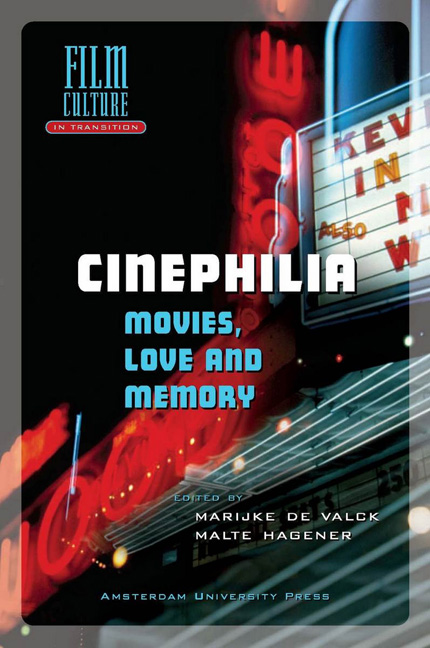Book contents
The Original Is Always Lost: Film History, Copyright Industries and the Problem of Reconstruction
Published online by Cambridge University Press: 25 January 2021
Summary
Over the last few decades, film archivists and copyright holders of films have become increasingly aware that the film heritage is under threat. Chemical decomposition and archival negligence, often due to lack of funds, eat away at the substance of what is left of the world's film heritage. Accordingly, conservation and reconstruction are the order of the day. In recent years, film archivists have developed the restoration of film into an archival discipline of its own, university programs are devoted to the preservation and presentation of films, entire festivals focus on the programming of restored works of film art, and increasingly such efforts receive funding from media companies who develop a renewed interest in their archival holdings. Supporting and structuring this cluster of activities of preservation and presentation are the twin notions of reconstruction and the original. Even though the notion of the original has recently come under discussion – and this essay will attempt to further contribute to that discussion – there is a general understanding among archivists and the alerted public that the key to the preservation of the film heritage is the reconstruction the work of film art in its original form and shape. Few people question that there actually is a need to preserve the film heritage. It is a work of culture, as directors and cinephiles such as Martin Scorsese will tell us, and who would dare to disagree?
However, from the outset, the reconstruction of films has been motivated as much by commercial interests as by cultural interests. In the second half of the last century, and particularly in the last fifteen years, major media companies have embarked on a large-scale operation of exploiting their own archival holdings, an activity that the press, using a metaphor rich in historical references, aptly describes as the “mining of the archives for coin.” This process of “mining” the past, of turning the past into a resource, has become one of the major sources of revenue for the large media conglomerates that dominate the global media economy. Clearly, film restoration represents not only a mission, but also a market for specialists in the field of preservation and presentation.
- Type
- Chapter
- Information
- CinephiliaMovies, Love and Memory, pp. 135 - 150Publisher: Amsterdam University PressPrint publication year: 2005



